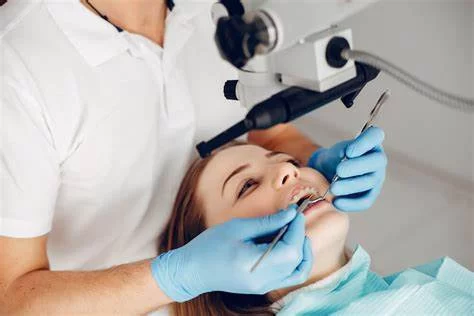
- 1-Importance-of-Oral-Hygiene-for-Cancer-Survivors
- 2-Common-Oral-Health-Challenges-After-Cancer-Treatment
- 3-Effective-Oral-Hygiene-Practices
- 4-Diet-and-Lifestyle-Tips-for-Oral-Health
- 5-Professional-Dental-Care-and-Monitoring
- 6-Personal-Stories-and-Expert-Advice
1. Importance of Oral Hygiene for Cancer Survivors
After completing cancer treatment, maintaining oral hygiene becomes critically important. Treatments like chemotherapy and radiation can weaken the immune system and affect the mouth’s tissues, making cancer survivors more vulnerable to infections, dryness, and dental issues.
Proper oral care helps prevent complications such as cavities, gum disease, and painful mouth sores, which can interfere with nutrition and overall recovery.
1.1 Protecting Oral Health During Recovery
Consistent oral hygiene supports healing, reduces discomfort, and promotes a higher quality of life for survivors adjusting to post-treatment changes.
2. Common Oral Health Challenges After Cancer Treatment
Cancer survivors often face unique oral health challenges, including:
- Dry Mouth (Xerostomia): Radiation therapy can damage salivary glands, leading to reduced saliva and increased risk of decay.
- Mouth Sores and Inflammation: Chemotherapy can cause mucositis, painful sores that require gentle care.
- Increased Sensitivity: Teeth and gums may become more sensitive to temperature and touch.
- Infections: Weakened immunity raises the risk of bacterial or fungal infections in the mouth.
3. Effective Oral Hygiene Practices for Cancer Survivors
Adopting a tailored oral hygiene routine is essential to manage these challenges effectively:
3.1 Gentle but Thorough Brushing
Use a soft-bristled toothbrush and fluoride toothpaste to clean teeth gently twice daily, avoiding harsh scrubbing that could irritate sensitive gums.
3.2 Flossing with Care
Daily flossing remains important but should be done gently to prevent bleeding and discomfort.
3.3 Hydration and Saliva Stimulation
Drink plenty of water and consider saliva substitutes or sugar-free chewing gum to combat dry mouth and encourage natural saliva flow.
3.4 Mouth Rinses
Use non-alcoholic, gentle mouth rinses recommended by dental professionals to soothe tissues and maintain oral cleanliness.
4. Diet and Lifestyle Tips for Supporting Oral Health
Nutrition plays a vital role in oral recovery:
4.1 Avoid Sugary and Acidic Foods
These can worsen tooth decay and irritate sensitive tissues.
4.2 Eat Soft, Nutritious Foods
Soft fruits, cooked vegetables, and protein-rich foods support healing without damaging delicate oral tissues.
4.3 Avoid Tobacco and Limit Alcohol
Both increase the risk of oral cancer recurrence and complicate healing.
5. Professional Dental Care and Regular Monitoring
Regular visits to a dental professional familiar with cancer survivors’ needs are crucial. Dentists can provide specialized cleanings, monitor for complications, and recommend treatments to manage symptoms effectively.
Early detection of problems through routine check-ups ensures prompt management and better outcomes.
6. Personal Stories and Expert Advice
Jane, a breast cancer survivor from New York, shares how diligent oral hygiene and professional dental support helped her overcome painful mouth sores during recovery. She credits this care for allowing her to maintain proper nutrition and comfort throughout her healing process.
Dental experts emphasize the importance of individualized care plans for survivors and encourage open communication about symptoms to tailor treatments accordingly.
Supporting Your Oral Health Journey
Oral hygiene tips for cancer survivors are not one-size-fits-all but require attention, care, and professional support. By following best practices and consulting experts, survivors can protect their oral health and enjoy a better quality of life post-treatment.
For personalized guidance and access to specialized dental products, visit Dentistry Toothtruth, where expert care meets compassionate support tailored for cancer survivors.







 MINT dentistry | Joliet0.0 (0 review)
MINT dentistry | Joliet0.0 (0 review) Dr. Mahtab Azimi, DDS1.0 (1 review)
Dr. Mahtab Azimi, DDS1.0 (1 review) Lakebrink-Mitts Dental - Dr. Thomas G. Lakebrink, Dr. D. Alexander Mitts, Dr. Ise d'Angelo, Dr. Nika d'Angelo5.0 (1390 review)
Lakebrink-Mitts Dental - Dr. Thomas G. Lakebrink, Dr. D. Alexander Mitts, Dr. Ise d'Angelo, Dr. Nika d'Angelo5.0 (1390 review) Whitman Dental Center4.0 (1018 review)
Whitman Dental Center4.0 (1018 review) Seung H. Baek, DDS, Inc.4.0 (19 review)
Seung H. Baek, DDS, Inc.4.0 (19 review) The Downtown Dentist5.0 (6 review)
The Downtown Dentist5.0 (6 review) The Importance of Oral Health Education During Pregnancy for a Healthy Pregnancy
The Importance of Oral Health Education During Pregnancy for a Healthy Pregnancy Best Tips for Brushing Your Teeth Properly for Healthy Gums: Essential Techniques for Oral Health
Best Tips for Brushing Your Teeth Properly for Healthy Gums: Essential Techniques for Oral Health Why Skipping Dental Checkups Can Lead to Bigger Oral Health Problems
Why Skipping Dental Checkups Can Lead to Bigger Oral Health Problems Advantages of Porcelain Dental Restorations
Advantages of Porcelain Dental Restorations How Can Diabetes Cause Tooth and Gum Problems? Preventing and Managing Oral Health Issues
How Can Diabetes Cause Tooth and Gum Problems? Preventing and Managing Oral Health Issues Healthy Habits for Promoting Good Oral Health and Hygiene: Tips for a Healthy Smile
Healthy Habits for Promoting Good Oral Health and Hygiene: Tips for a Healthy Smile